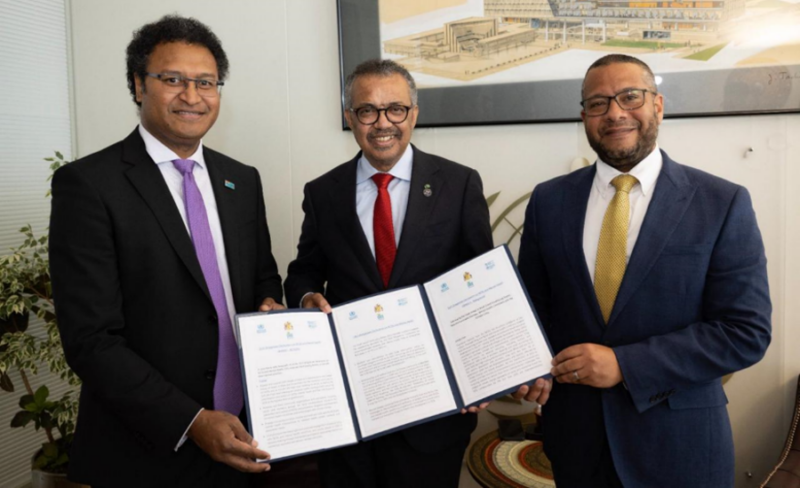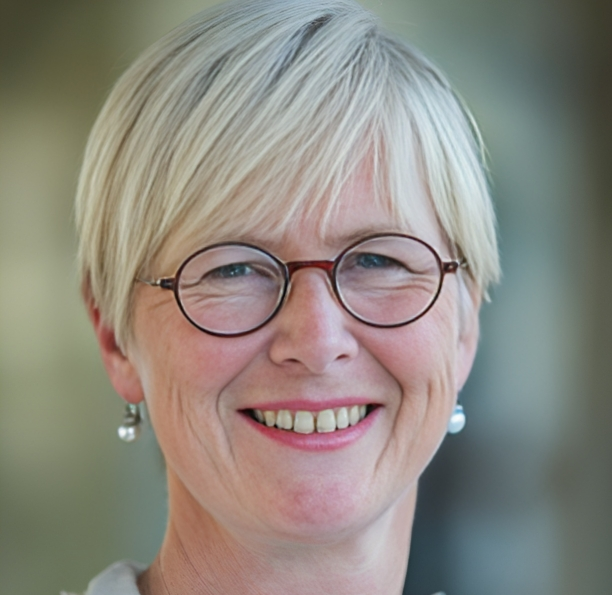Bente Mikkelsen, Director NCD Department at World Health Organization, shared a post on LinkedIn:
“Building Health System Resilience to Address the Rising Burden of NCD in SIDS-
36th Commonwealth Health Ministers’ Meeting
Realizing commitments from the 2023 Bridgetown Declaration on NCDs and Mental Health.
The world is facing a tsunami of noncommunicable diseases. These silent killers—cardiovascular diseases, cancers, diabetes, and chronic respiratory diseases—are responsible for 17 million premature deaths worldwide. 86% of them occur in low and middle-income countries.
In small island developing states, these diseases take an even heavier toll. There are numerous interlinked challenges. For example, socio-economic factors, commercial determinants of health, fragile health systems, climate change, and loss of biodiversity. These factors complicate and worsen health outcomes for people living with NCDs.
Three points on how to address these challenges:
First, we need strong leadership.
Second, are the tailored solutions ‘by the SIDS, and for the SIDS.’
And third, is the significant investment to make it all happen.
On leadership.
Small Island States have been at the forefront of the NCD battle for a long time. The good news is, they have become strong leaders and advocates for NCDs. The Port of Spain Declaration and the SAMOA Pathway have shined a light on NCDs within the SDG agenda.
Last year, in Barbados, we convened a Ministerial Meeting on NCDs and mental health and launched the 2023 Bridgetown Declaration, under the graceful leadership of Prime Minister Mia Mottley.
Since then, we have collected specific commitments from over 20 SIDS Member States on their plans to accelerate progress in addressing NCDs and key risk factors, by 2025.
In a few days, the world will convene for the Fourth International Conference on SIDS in Antigua and Barbuda to redefine the next decade of action in SIDS. I am pleased that the Prime Minister of Antigua and Barbuda, along with WHO and PAHO, are convening a special event to discuss the future of the Bridgetown Declaration.
The second point is on Tailored Solutions:
What makes SIDS unique?
These islands are small in size and population, remote, and have limited health infrastructure. SIDS represent just 1% of the world’s population and economy. They emit less than 1% of greenhouse gases. And yet, they are the ones severely affected by climate change, rising sea levels, and natural disasters.
Shocks such as pandemics further disrupt health care and weaken the delivery of NCD services.
Although SIDS train an excellent health workforce, these professionals often leave their countries to find better opportunities abroad. We need tailored solutions involving bilateral agreements, and necessary incentives, to retain the health workforce in the islands.
Let’s consider food systems and nutrition.
Historically, island states relied on locally farmed, nutritious foods. Today, they rely heavily on imported foods – in some islands, up to 90% of food is imported. There are many factors at play here – effects of history, economic factors, climate change, and commercial determinants of health, for example. It has led to the increased consumption of highly processed foods and drinks, and a rise in obesity.
We know that Pacific island countries accounting for 9 out of the top 10 countries with the highest prevalence of obesity among both women and men. The need for tailored, SIDS-specific solutions, is absolutely essential.
Following the Bridgetown Declaration, Member States have shared their plans through a SIDS Commitment Page.
For example:
Barbados has introduced a school nutrition policy.
Timor-Leste is putting 50,000 people with hypertension and diabetes on standard care by 2025.
Fiji is vaccinating girls to protect them from cervical cancer.
And we are urging countries to strengthen climate mitigation measures to reduce NCD risks in these vulnerable contexts.
The third point is on Investment.
Financing for health and NCDs is crucial. We need investment in infrastructure, capacity building, research, innovation, and access to medicines. We should invest in regulating harmful products such as tobacco and alcohol, while promoting healthy foods and beverages. We should invest in creating healthy environments.
However, securing investments has always been a struggle for SIDS.
There is a need to unlock domestic funding.This will help cover the costs of prevention and healthcare.
We also need to transform international aid. There are strict eligibility criteria linked to GDP which prevent many SIDS from accessing certain funding.
Sadly, these GDP figures do not tell the full story. They miss out the structural vulnerabilities that I mentioned before – linked to climate, economy, or health. A Multi-dimensional Vulnerability Index– or MVI – is one solution that can help.
Many of these topics will be discussed at the International Dialogue on Sustainable Financing for NCDs and Mental Health in Washington on June 20-21, thanks to a collaboration between WHO, the World Bank, and partners.
Today’s discussion at the Commonwealth Health Minister meeting is urgent and timely.
Next year, we will convene the Fourth UN High-level Meeting on NCDs.
This is our opportunity to adopt a new and ambitious political declaration on NCDs with a vision towards 2030 and 2050. It is our chance to be bold and serious about our commitments.
The Commonwealth is a key partner on this shared journey. Initiatives like the new NCD Guiding Framework offer a practical guide to address NCDs by empowering youth to take action. The Commonwealth’s Heads of Procurement Network is also being used to improve access to essential NCD medicines.
As WHO, we are committed to support all countries on the path towards achieving SDG 3.4.
I look forward to strengthening our partnerships and support provided to Commonwealth members. I hope all Government leaders joining us this week in Geneva will engage closely to get involved in the preparatory process for next year’s high-level meeting and accelerate action to prevent and control NCDs including Mental Health.”

Source: Bente Mikkelsen/LinkedIn


